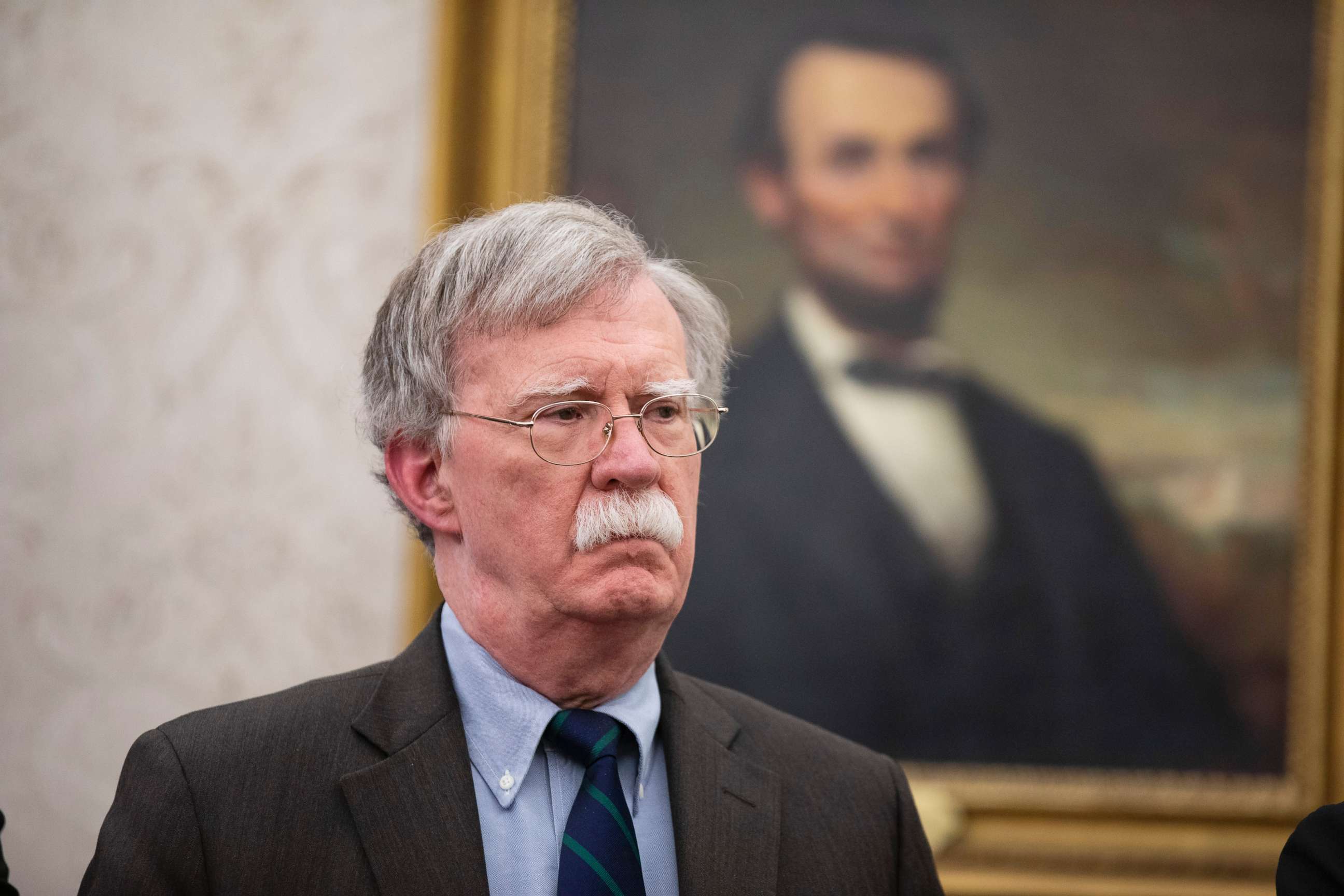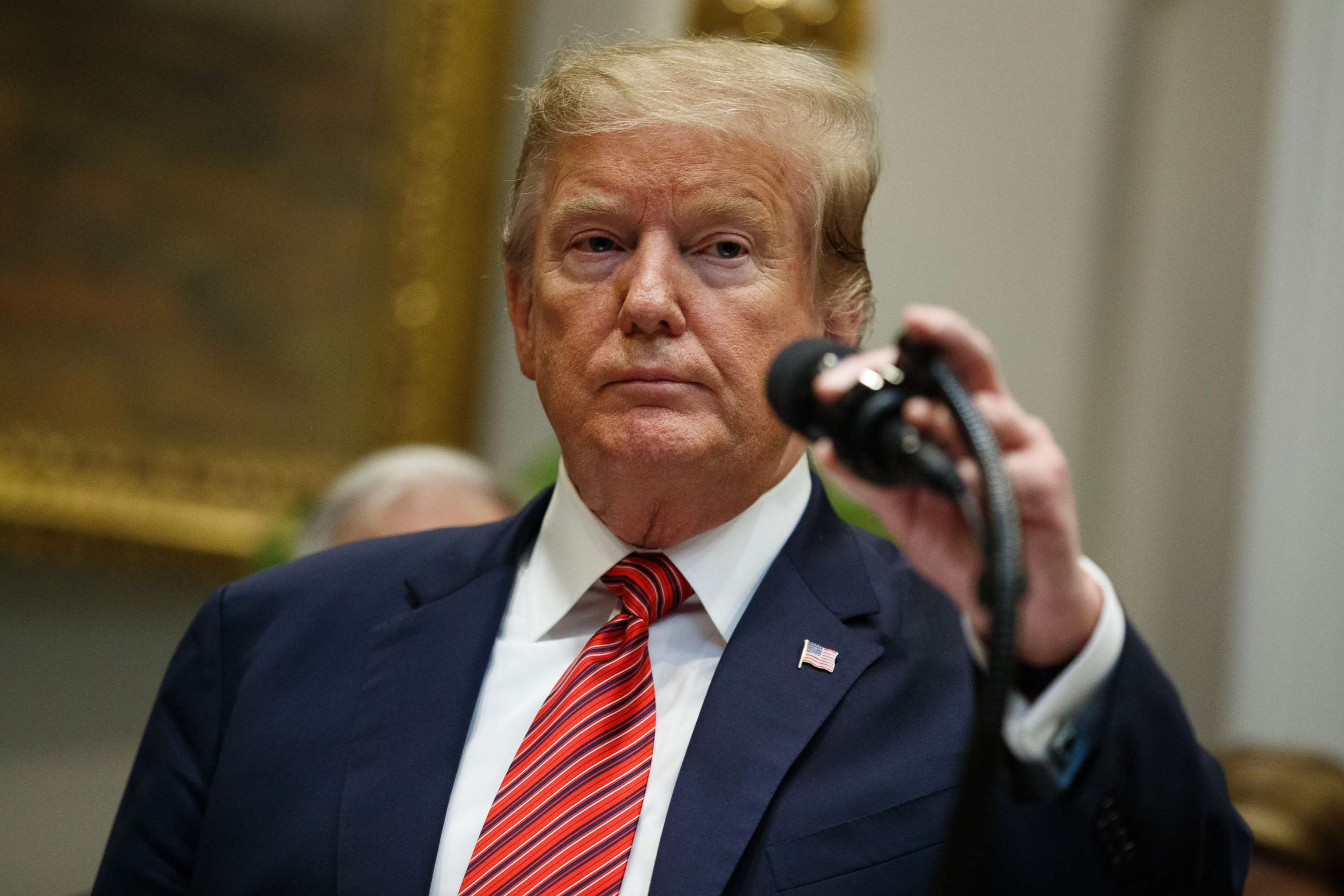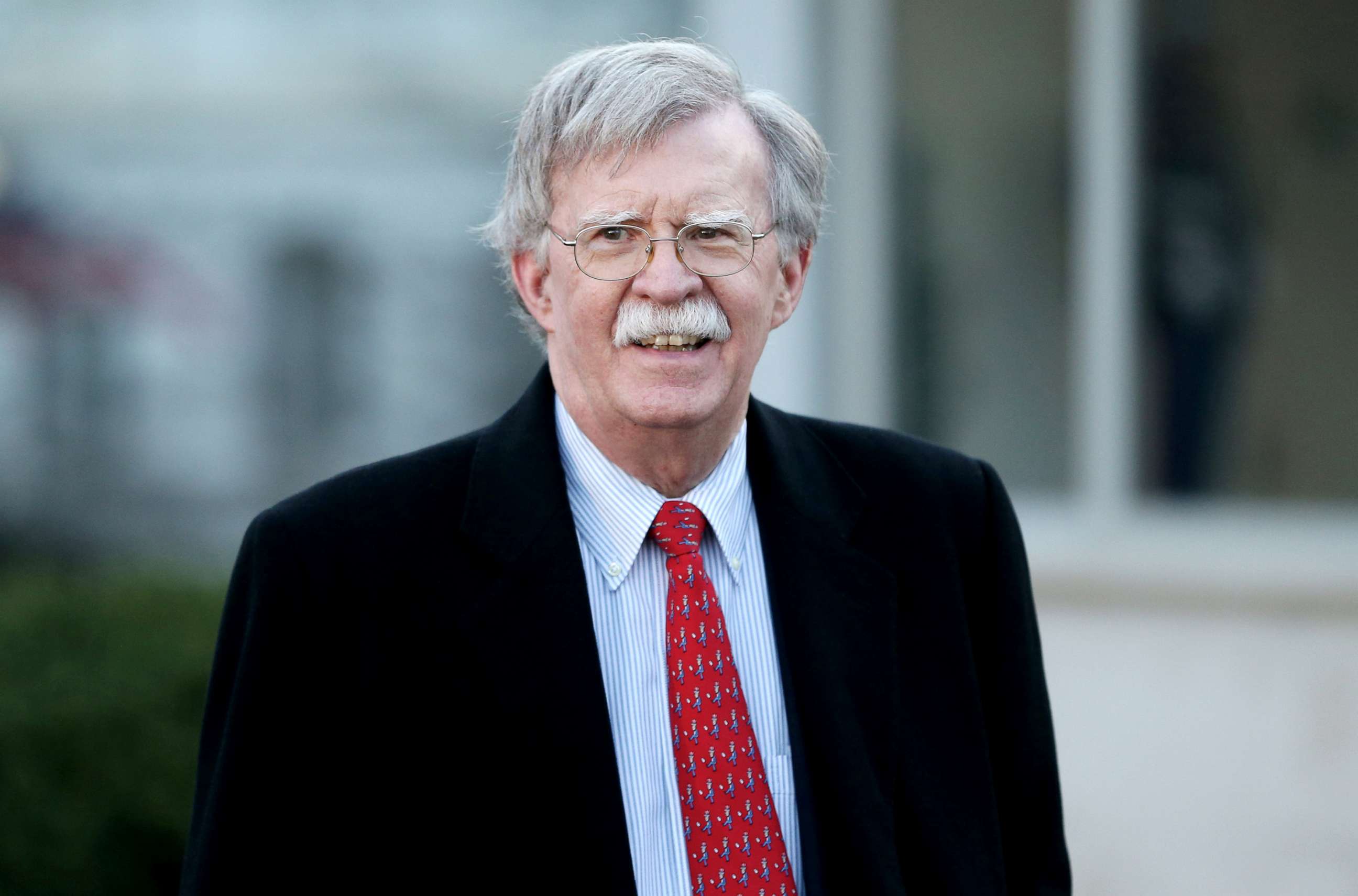National security adviser John Bolton says Trump is 'as clear as clear can be' on elimination of ISIS
"The ISIS threat will remain," national security adviser John Bolton said.
White House national security adviser John Bolton told "This Week" Co-Anchor Martha Raddatz that President Donald Trump is "as clear as can be" when discussing the defeat of the Islamic State.
"The president has been, I think, as clear as clear can be when he talks about the defeat of the ISIS territorial caliphate," Bolton said on Sunday. "He has never said that the elimination of the territorial caliphate means the end of ISIS in total. We know that's not the case. We know right now that there are ISIS fighters scattered still around Syria and Iraq. And that ISIS itself is growing in other parts of the world. The ISIS threat will remain."
Last month, Trump claimed that "100 percent" of the self-proclaimed Islamic State in Syria has been defeated.
"We did that in a much shorter period of time then it was supposed to be," Trump told American troops in Alaska on a stop during his return from his summit with North Korean leader Kim Jong Un.
"We just took over ... you kept hearing 90 percent, 92 percent, the caliphate in Syria. Now it is 100 percent. We just took over 100 percent caliphate. That means the area of the land. We have 100 percent," Trump said.

But on Thursday Gen. Joseph Votel, the commander of U.S. troops in the Middle East, warned that "the fight against ISIS and violent extremism is far from over."
"While ISIS has been battered by the Syrian Democratic Forces and coalition forces, we should be clear in our understanding that what we are seeing now is not the surrender of ISIS as an organization but a calculated decision to preserve the safety of their families and preservation of their capabilities by taking their chances in camps for internally displaced persons, and going to ground in remote areas and waiting for the right time for a resurgence," Votel told the House Armed Services Committee.
Bolton said Sunday that he would not "criticize" partial clips of Votel's comments.
"But one reason that the president has committed to keeping an American presence in Iraq and a small part of an observer force in Syria, is against the possibility that there would be a real resurgence of ISIS, and we would then have the ability to deal with that if that arose," Bolton said. "And the importance of the territorial caliphate goes to an ideological point at the center of ISIS's theory of itself, namely that they were a caliphate because under their view of what a caliphate is, you have to control territory."
Trump has boasted of his progress on Twitter, tweeting in December that, "We have defeated ISIS in Syria, my only reason for being there during the Trump Presidency."
And Trump has recently hinted at continued progress, tweeting in January that the "Caliphate will soon be destroyed," and in February that, "The U.S. will soon control 100% of ISIS territory in Syria."

Syrian Democratic Forces (SDF), backed by the U.S.-led coalition, resumed the offensive on Baghouz on March 1, after they had paused for more than a week to allow an estimated 10,000 civilians and ISIS families to leave the town.
An SDF official told the Associated Press that ISIS gunmen in Baghouz were still prepared to fight.
"This is not the end. We are maybe on the threshold of a new battle," he said.
In terms of tackling the ideological threat ISIS poses, Bolton said "as long as the ideology is out there it continues to be a threat."
"The ISIS threat, the al-Qaeda threat, the terrorist threat is an ideological threat worldwide and it's something that I think we have to be vigilant against for the foreseeable future. That's the reality," Bolton said.
In a Pentagon report released last month, it was indicated that without sustained pressure the Islamic State could reconstitute in Syria within six to 12 months.

Bolton said he's "very optimistic" that British and French allies will help aid the U.S. in the case of a possible resurgence.
"It hasn't happened formally yet, but they're looking at it. I think it's very important that we try and get this up. It may or may not succeed," Bolton said.
As the fight against the Islamic State in Syria winds down, Trump's administration is leaving open the possibility that some of the group's foreign fighters be sent to the U.S. detention facility at Guantanamo Bay, Cuba.
Trump tweeted last month that the U.S. is asking allies to have foreign ISIS fighters detained in Syria returned to their home countries and put on trial.
"The United States is asking Britain, France, Germany and other European allies to take back over 800 ISIS fighters that we captured in Syria and put them on trial" Trump tweeted. "The alternative is not a good one in that we will be forced to release them."
"Time for others to step up and do the job that they are so capable of doing," Trump tweeted.




